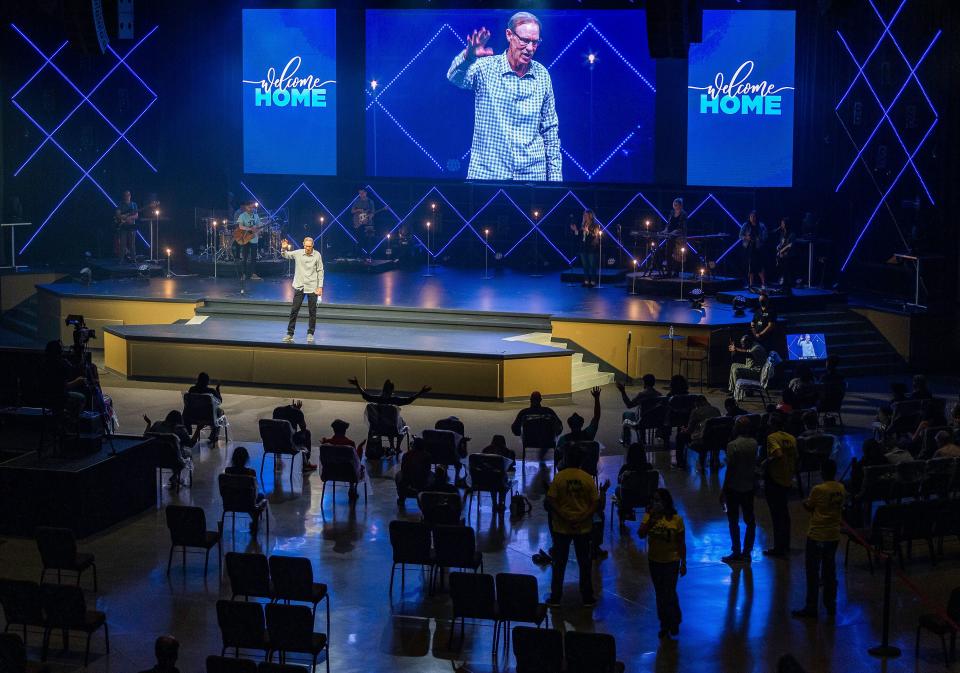Even White Evangelicals Don't Think Churches Should Be Exempt From Virus Restrictions
Conservative Christian activists have pushed state and local authorities for months to allow houses of worship to reopen on their own terms during the coronavirus pandemic. But a new survey from the Pew Research Center suggests that most Americans ― including evangelicals ― believe houses of worship shouldn’t get special treatment.
About eight in 10 Americans surveyed by Pew (79%) said that houses of worship should be required to follow the same rules about social distancing and large gatherings as other organizations or businesses in their local area, according to a report published Friday. Evangelical Protestants were most likely to say the opposite ― that houses of worship should be given more flexibility. But even among this religious group, the majority (62%) believed that houses of worship should be held to the same standard as businesses.
Narrowing the data down even further, the majority of white evangelical Protestant respondents (59%) said that churches should be required to follow the same rules as other establishments in their local area, according to an analysis Pew conducted for HuffPost.
The statistics suggest that, even as someevangelical pastors claim coronavirus restrictions are violating congregants’ religious liberty, many Americans of faith believe authorities do have the right to tell congregations how to worship during a global health crisis.

Most states already have rules in place exempting houses of worship from social distancing orders. Still, defending the ability of houses of worship to meet in person during the pandemic has become a key concern for the conservative Christian legal movement, which seeks to advance and protect conservative religious values primarily through legal advocacy. The law firms that spearhead this movement have stepped in on numerous occasions over the past few months to rally and defend churches that want to flout local or state coronavirus restrictions. With the help of these legal...



